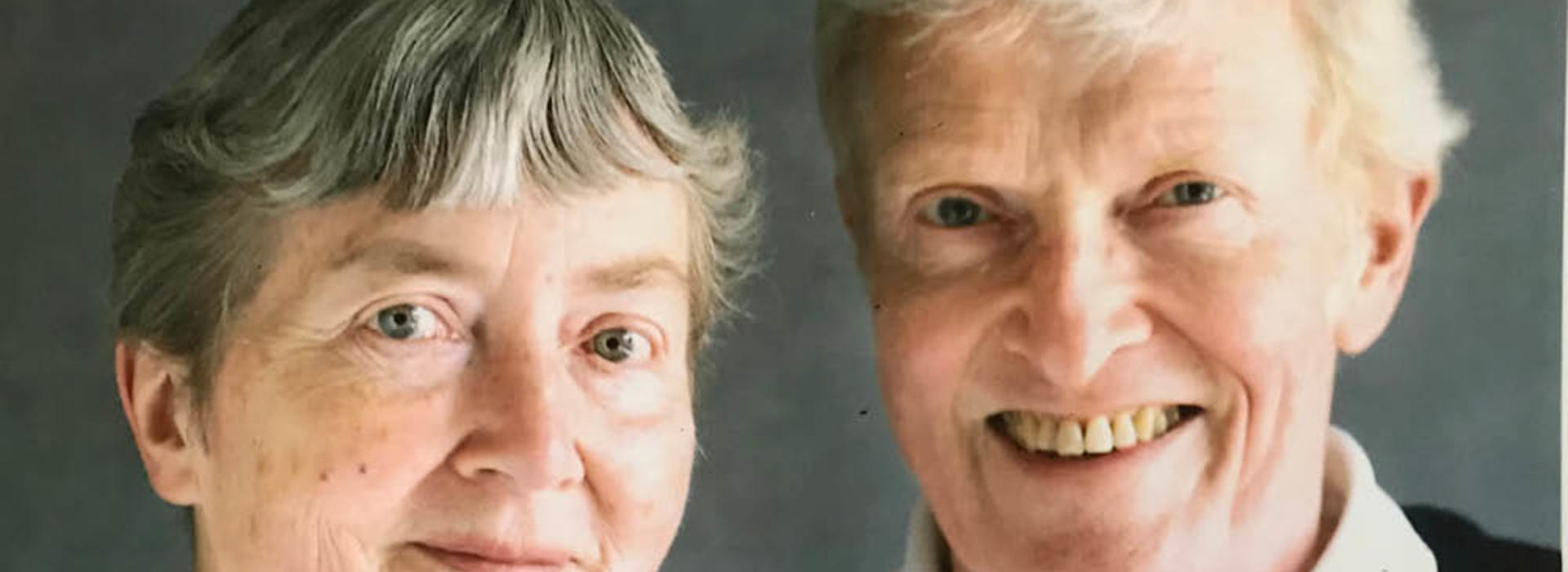
War Experiences Inspire Medical Student Scholarship
During World War II, University of Minnesota Medical School, Duluth Campus faculty member Dr. John Sanford dropped out of high school in order to attend the U.S. Navy V12 accelerated college to earn his medical degree. Shortly after, he served as a surgeon in a M.A.S.H (Mobile Army Surgical Hospital) unit during the Korean War. When he returned to the United States, he continued to build on his education by pursuing his residency in Chicago where he met his future wife, Dr. Julie Moller Sanford on a blind date. Before they had met, she had journeyed over international waters when, at 13, she and her ten-year-old sister fled Denmark as the Germans invaded. The sisters traveled through Germany and Italy before boarding a ship for New York. Memories of kindness while traversing Europe still ring in the voices of their children who remember their parents as gracious and compassionate doctors who both held faculty positions at the U of M Medical School, Duluth Campus.
According to their daughter, Ann Sanford, “They had always planned to create a scholarship. As lifelong learners, they both understood the importance of education and strongly believed in paying it forward. Our parents knew how fortunate they were to become physicians when they did. Having experienced help and opportunity along the way, they felt it was only right to provide the same for others.”
Today, the memory of their courage, intelligence, kindheartedness and incredible stewardship is honored through the John B. and Julie Moller Sanford Endowed Scholarship. They established this scholarship to support medical students who first enroll at the Duluth campus, and then transfer to the Twin Cities campus for their final two years of study. The four Sanford children have been involved with the school and the scholarship. Their son, Dr. Paul Sanford, is an internal medicine specialist with St. Luke’s Hospital in Duluth and has over 33 years of experience in the medical field.
“I learned from them that this is one of the most sacred professions on planet earth,” he said. “They always emphasized that the highest tech part of medicine is just being nice. Empathy is the most important tool a doctor can have. The impact of a scholarship and how that allows students to not only focus on being better doctors, but on being parents, sons, daughters, good neighbors, good friends and good people. When you can take away the obstacles to that, life becomes a little bit easier. This scholarship is our way of sharing.”
Their daughter, Dr. Martha Sanford, is currently practicing as a general/primary care internist at Health Partners Clinic Stillwater. “My parents have always valued education and were involved in the U of M Medical School in Duluth since its inception,” she said. “I can remember as a freshman in high school hearing them talk about this wonderful new school in Duluth. They realized that receiving an education was costly, bordering on hardship. My father gained his medical education under the GI bill and was always grateful for the funding he received. It was with much joy that they set up this scholarship, and they are in spirit with the recipients.”
In 2021, the scholarship was awarded to its very first recipient, Abby Coyle, who is now completing her second year of medical school at the Duluth campus. “The financial burden of medical school and the stress with finances has been greatly reduced,” she said. “For that I cannot express enough gratitude.”
Years before she even knew she wanted to become a doctor, her dad underwent surgery. It was then that Coyle felt the first flicker of interest when she met the cardiothoracic surgeon who performed the open-heart procedure. “I was young at the time, and I marveled at the idea that he ‘fixed’ my dad’s heart. My interaction with that physician still sticks with me today, and little did I know that it would be the spark that ignited my curiosity and eventually my journey to medicine.”
Even though the surgical procedure inspired her, her interest in rural family medicine has deep roots. “I grew up in rural Minnesota and I was taken care of by a whole community. I strongly feel the desire to return to a small community and give back what was given to me in my rural upbringing. Rural family medicine would allow me to do just that. I am also drawn toward the continuity and variety that family medicine offers. It allows physicians to learn and grow with patients at all stages of life. I am so grateful for the generosity of the donors. I am inspired to offer my own financial generosity to medical students in the future.”